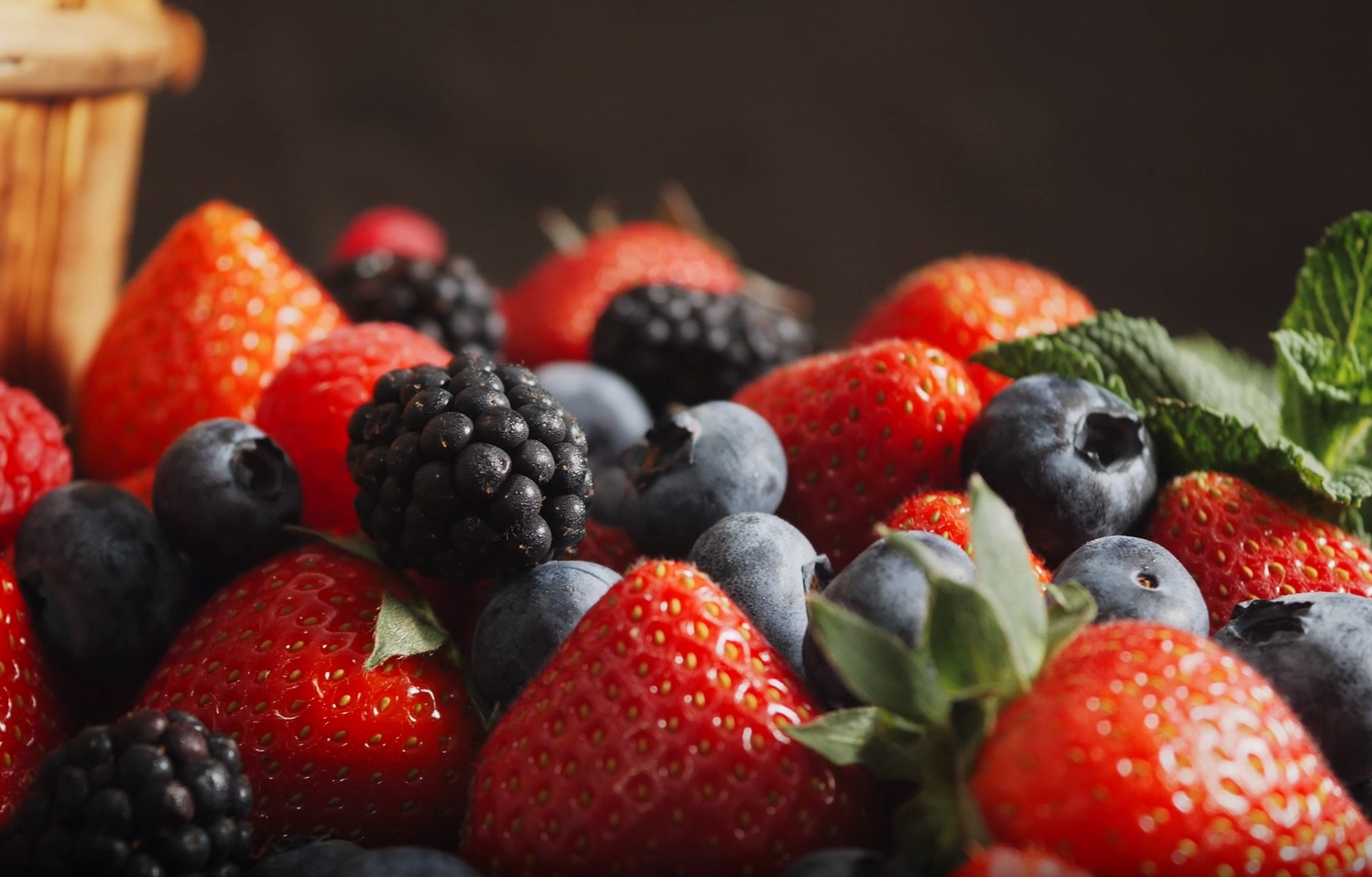Lemons, with their vibrant yellow color and refreshing taste, are not just a flavorful addition to your meals and beverages but also a powerhouse of antioxidants. Antioxidants play a crucial role in neutralizing harmful free radicals in the body, promoting better health and well-being. In this article, we will explore the benefits of antioxidants in lemons and how they combat free radicals for better health.
To understand the significance of antioxidants, it is essential to grasp the concept of free radicals and their harmful effects on the body. Free radicals are unstable molecules that can cause oxidative stress and damage to cells, leading to various health issues such as inflammation, aging, and chronic diseases.
Antioxidants, on the other hand, are compounds that can counteract the harmful effects of free radicals. They work by donating electrons to stabilize free radicals, thus preventing them from causing oxidative damage.
There are various types of antioxidants, including vitamins, minerals, and phytochemicals. Each type has its unique role and benefits in promoting good health.
Lemons are known for being a rich source of antioxidants, particularly vitamin C and flavonoids. Vitamin C acts as a potent antioxidant, protecting cells from damage, boosting the immune system, and supporting collagen production for healthy skin. Flavonoids, another group of antioxidants found in lemons, have been linked to numerous health benefits, including reducing inflammation and supporting heart health.
By understanding the role of antioxidants in lemons and the benefits they provide, you can make informed choices about incorporating this vibrant fruit into your daily routine for better health.
Page Contents
- 1 What are Free Radicals and Why are they Harmful?
- 2 Role of Antioxidants in Health
- 3 Natural Sources of Antioxidants
- 4 Specific Antioxidants in Lemons
- 5 Health Benefits of Lemons and their Antioxidants
- 6 Incorporating Lemons and Antioxidants into Your Diet
- 7 Some Facts About Antioxidants in Lemons: Fighting Free Radicals for Better Health:
- 8 Frequently Asked Questions
- 8.1 What is the nutritional value of lemon water?
- 8.2 Can lemon water help with weight loss?
- 8.3 Is there scientific evidence to support the health benefits of lemon water?
- 8.4 Can drinking lemon water reduce the risk of kidney stones?
- 8.5 Are lemons a good source of antioxidants?
- 8.6 How do lemons contribute to better immune health?
What are Free Radicals and Why are they Harmful?
- Free radicals are highly reactive molecules or atoms that have an unpaired electron in their outer shell. These unpaired electrons make free radicals unstable and highly reactive.
- When free radicals are formed in the body, they can cause damage to cells, proteins, and DNA. This damage is known as oxidative stress.
- Oxidative stress can lead to various health problems, such as inflammation, premature aging, and an increased risk of chronic diseases like heart disease, cancer, and Alzheimer’s.
- Free radicals are generated in the body as a natural byproduct of metabolism. They can also be produced due to exposure to environmental factors like pollution, radiation, and tobacco smoke.
- In small amounts, the body can handle free radicals and neutralize them with antioxidants, which are substances that can donate an electron to stabilize the free radicals.
- When there is an imbalance between the production of free radicals and the body’s antioxidant defenses, oxidative stress occurs, leading to cellular damage and negative health effects.
- A diet rich in antioxidants, such as vitamin C, vitamin E, and other phytochemicals, can help combat oxidative stress by neutralizing free radicals and protecting cells from damage.
- Consuming a variety of antioxidant-rich foods like fruits, vegetables, nuts, and seeds can help boost your body’s natural defense against free radicals.
- It’s also important to avoid or limit exposure to environmental factors that contribute to the production of free radicals, such as air pollution and excessive sun exposure.
- Understanding the harmful effects of free radicals and taking steps to incorporate antioxidants into your diet can help promote better health and reduce the risk of chronic diseases associated with oxidative stress.
Role of Antioxidants in Health

Antioxidants have a vital role in maintaining good health by counteracting the damaging effects of harmful free radicals in the body. These unstable molecules can cause cellular damage and contribute to various health issues. By neutralizing free radicals, antioxidants serve to safeguard the body against oxidative stress and mitigate the risk of chronic diseases.
Consider the following important points regarding the role of antioxidants in health:
- Antioxidants, such as vitamins C and E, beta-carotene, and selenium, actively boost the immune system, supporting the body’s defenses against infections and diseases.
- Scientific studies have revealed the anti-inflammatory properties of antioxidants, which can effectively reduce inflammation throughout the body. This reduction in inflammation is associated with a lower risk of chronic conditions like heart disease, diabetes, and certain types of cancer.
- Research suggests that antioxidants can enhance brain function and protect against age-related cognitive decline. They are believed to play a role in improving memory, attention, and overall cognitive performance.
- Consumption of antioxidant-rich foods, including fruits, vegetables, nuts, and whole grains, has been linked to a reduced risk of chronic diseases like cardiovascular disease, cancer, and neurodegenerative disorders.
- It is crucial to incorporate a diverse range of antioxidant-rich foods into your diet to benefit from the wide range of antioxidants they offer. Different antioxidants have distinct functions and work together synergistically to support overall health and well-being.
- While antioxidants bring numerous benefits, it is essential to note that excessive intake of antioxidant supplements may have adverse effects. It is always optimal to obtain antioxidants through a balanced diet rather than relying solely on supplements.
By comprehending and embracing the role of antioxidants in our daily lives, we can foster and cultivate better health while minimizing the risk of chronic diseases.
How Do Antioxidants Work to Neutralize Free Radicals?
Antioxidants play a crucial role in neutralizing free radicals by gracefully donating an electron to stabilize them. When free radicals, which are unstable molecules capable of causing harm to cells and contributing to various health problems, are present, antioxidants step in to neutralize their damaging effects through a process called oxidation. During oxidation, molecules lose electrons, resulting in the formation of free radicals. These free radicals can then react with other molecules within the body, leading to oxidative stress and potential harm.
Contrarily, antioxidants are specialized molecules that possess the unique ability to donate electrons to free radicals, effectively neutralizing them. By offering electrons, antioxidants ensure the stabilization of free radicals, thereby preventing cellular damage. This mechanism helps maintain a balance in the levels of free radicals within the body and minimizes their detrimental impact.
The spectrum of antioxidants includes various types, such as vitamins (like vitamin C and E), minerals (such as selenium), and phytochemicals found in plants. Each category of antioxidant operates in its own distinctive way, effectively neutralizing free radicals and safeguarding cells against oxidative damage.
Incorporating a wide range of antioxidant-rich foods, such as lemons, into your daily diet can significantly contribute to the intake of these beneficial compounds. However, it is advisable to seek guidance from a healthcare professional before making significant changes to your diet or supplementation routine.
Types of Antioxidants: From powerful Vitamin C to mighty flavonoids, these antioxidant superheroes are ready to save your cells from the evil clutches of free radicals.
Types of Antioxidants

When it comes to antioxidants, various types of antioxidants play an important role in promoting good health. Here is a list of different types of antioxidants:
- Vitamin C: This antioxidant is well-known for its immune-boosting properties. It helps protect cells from damage and supports the body’s natural defense system.
- Vitamin E: Another powerful antioxidant, vitamin E protects cell membranes from oxidative damage. It plays a key role in maintaining healthy skin and is also believed to support heart health.
- Beta-carotene: This antioxidant is converted into vitamin A in the body and helps protect cells from harmful free radicals. Beta-carotene is also known for promoting good vision and maintaining healthy skin.
- Lycopene: Found in foods like tomatoes and watermelon, lycopene is a potent antioxidant that has been linked to a reduced risk of certain types of cancer, especially prostate cancer.
- Flavonoids: These antioxidants are found in a variety of colorful fruits and vegetables. They have anti-inflammatory and antioxidant properties and may help reduce the risk of chronic diseases such as heart disease and certain cancers.
True story: John, a middle-aged man, decided to incorporate a variety of antioxidant-rich foods into his diet after hearing about their numerous health benefits. He started adding fruits like berries, which are rich in flavonoids, to his morning smoothies. He also made sure to include foods high in vitamins C and E, such as oranges and almonds, in his daily meals. Over time, John noticed that he felt more energized and his skin appeared healthier. He attributed these positive changes to the antioxidant-rich foods he was consuming. Inspired by his own experience, John began recommending these foods to his friends and family, emphasizing the importance of incorporating different types of antioxidants into their diets for overall health and well-being.
Want to fight free radicals? Look no further than nature’s bounty of antioxidant-rich fruits and vegetables.
Natural Sources of Antioxidants
Looking to boost your antioxidant intake naturally? Look no further than the power-packed goodness of lemons! In this section, we’ll dive into the delightful world of natural sources of antioxidants, starting with an introduction to lemons as a rich source. And that’s not all – we’ll also explore other fantastic fruits and vegetables that are high in antioxidants. Get ready to supercharge your health with these antioxidant-rich wonders!
Introduction to Lemons as a Rich Source of Antioxidants
Lemons are an excellent choice when seeking a bountiful supply of antioxidants. These citrus fruits are abundant in various antioxidants that offer numerous health benefits. Here is an introduction to the reasons why lemons are considered a potent source of antioxidants:
- Abundance of Vitamin C: Lemons are bursting with vitamin C, a potent antioxidant that shields the body against free radicals. Vitamin C supports immune health and aids in collagen production, promoting healthy skin.
- Flavonoids: Lemons also boast flavonoids which are plant compounds known for their antioxidant properties. These compounds assist in reducing inflammation and oxidative stress within the body, thereby promoting holistic well-being.
- Anti-inflammatory Properties: Lemons possess remarkable anti-inflammatory properties that provide relief for various inflammatory conditions. By decreasing inflammation, lemons actively support heart health, joint health, and overall pain relief.
- Alkalizing Effects: Despite being naturally acidic, lemons surprisingly have an alkalizing effect on the body. This means that they assist in balancing the body’s pH levels, promoting optimal health, and reducing the risk of certain diseases.
- Versatility and Easy Incorporation: Lemons are incredibly versatile and can be effortlessly incorporated into your diet. Enjoying fresh lemon juice, creating delicious lemon-infused water, or utilizing lemon zest in your cooking and baking endeavors will allow you to reap the benefits of these antioxidants.
Other Fruits and Vegetables High in Antioxidants

When it comes to incorporating antioxidants into your diet, there are many other fruits and vegetables high in antioxidants that are worth considering. Here is a list of some of these antioxidant-rich foods:
- Blueberries: Blueberries are known for their high antioxidant content, particularly anthocyanins. These compounds can help neutralize free radicals and reduce oxidative stress in the body.
- Spinach: Packed with vitamins and minerals, spinach is also rich in antioxidants like vitamin C, vitamin E, and beta-carotene. These antioxidants help protect the body against damage caused by free radicals.
- Kale: Another nutrient-dense leafy green, kale is an excellent source of antioxidants, including vitamins A, C, and K. It also contains flavonoids, which have been shown to have powerful antioxidant and anti-inflammatory properties.
- Strawberries: In addition to being delicious, strawberries are loaded with antioxidants such as vitamin C and various types of flavonoids. These antioxidants can help reduce inflammation and oxidative stress in the body.
- Broccoli: This cruciferous vegetable is packed with antioxidants, including vitamins C and E. It also contains sulforaphane, a powerful compound that activates the body’s natural antioxidant defenses.
- Oranges: Known for their high vitamin C content, oranges are also rich in other antioxidants like flavonoids and carotenoids. These antioxidants help protect cells from damage and support a healthy immune system.
- Raspberries: Raspberries are not only sweet and tangy but also rich in antioxidants such as vitamin C and various types of flavonoids. These antioxidants have been linked to numerous health benefits, including reducing the risk of chronic diseases.
Including these other fruits and vegetables high in antioxidants in your diet can help provide a wide range of health benefits and protect your body against oxidative stress. Try incorporating them into your meals and snacks for a nutritious and antioxidant-rich diet.
Lemons aren’t just sour, they’re also packed with antioxidants that fight free radicals with a vengeance!
Specific Antioxidants in Lemons

Lemons are more than just a tangy fruit – they pack a punch when it comes to antioxidants! In this section, we’ll dive into the specific antioxidants found in lemons and how they contribute to better health. First up, we have vitamin C, a powerhouse antioxidant known for its immune-boosting properties. And don’t forget about flavonoids, another group of antioxidants in lemons that offer a range of health benefits. So, get ready to squeeze out the juicy details on these lemon antioxidants!
Vitamin C
There are several important aspects to consider when it comes to understanding the benefits of Vitamin C in lemons:
- Vitamin C content: Lemons are an excellent source of Vitamin C, containing approximately 53 milligrams per 100 grams of fruit. This makes it a valuable addition to your diet for meeting your daily Vitamin C requirements.
- Antioxidant properties: Vitamin C is a powerful antioxidant that helps protect the body against damage caused by free radicals. It neutralizes these harmful molecules and reduces oxidative stress in the body.
- Immune system support: Vitamin C plays a crucial role in supporting the immune system, as it helps stimulate the production of white blood cells, which are essential for fighting off infections and illnesses.
- Collagen synthesis: Vitamin C is essential for the synthesis of collagen, a protein that is important for maintaining healthy skin, bones, and connective tissues. Consuming lemons and other Vitamin C-rich foods can help promote healthy skin and tissue repair.
- Absorption and bioavailability: It’s important to note that Vitamin C is sensitive to heat and can be easily destroyed during cooking or processing. To maximize the benefits of Vitamin C in lemons, it is recommended to consume them raw or use them in dishes where minimal heat is applied.
To incorporate more Vitamin C into your diet, try adding fresh lemon juice to your water or infusing it with lemon slices. You can also use lemon zest in cooking and baking to enhance the flavor of your dishes while reaping the benefits of Vitamin C. Remember to choose fresh, ripe lemons to ensure the highest Vitamin C content. Incorporating lemons and their Vitamin C content into your diet can boost your immune system, support skin health, and provide antioxidant protection for better overall health.
Flavonoids
Flavonoids are a type of antioxidant that plays a crucial role in maintaining good health. Here are some important facts about flavonoids:
- Flavonoids can be found in a variety of plant-based foods, such as fruits, vegetables, grains, and legumes. They are responsible for the vibrant colors of these foods.
- Flavonoids are known for their powerful antioxidant properties. They help protect the body against damage caused by harmful free radicals.
- Studies have shown that consuming foods rich in flavonoids may reduce the risk of chronic diseases, including heart disease, certain types of cancer, and neurodegenerative disorders.
- Some common sources of flavonoids include citrus fruits, berries, apples, onions, broccoli, and tea.
- Different flavonoids have different health benefits. For example, quercetin, a type of flavonoid found in onions and apples, has been shown to have anti-inflammatory and anti-allergic properties.
- Flavonoids also have the potential to improve cardiovascular health by reducing inflammation, preventing blood clot formation, and improving blood vessel function.
- Including a variety of foods rich in flavonoids in your diet is important for reaping the many health benefits they offer. Aim to incorporate different colored fruits and vegetables into your meals to ensure a good intake of flavonoids.
- It’s important to note that while flavonoids can offer health benefits, they are not a miracle cure or a substitute for a balanced diet and a healthy lifestyle.
By understanding the role of flavonoids and making informed choices about the foods we consume, we can harness the power of these antioxidants to support our overall well-being.
Health Benefits of Lemons and their Antioxidants

Lemons, with their rich antioxidant content, offer a myriad of health benefits that are worth exploring. In this section, we’ll uncover the various ways in which lemons and their antioxidants contribute to our overall well-being. From boosting our immune system to supporting heart health and enhancing the quality of our skin, lemons prove to be a powerful ally in our journey towards better health. So join me as we uncover the refreshing and health-boosting properties of these citrus wonders.
Boosting Immune System
Boosting the immune system is essential for maintaining overall health and preventing illness. Here are some ways to naturally enhance your immune system:
- Consuming vitamin C-rich foods: Vitamin C is known to strengthen the immune system. Lemons, which are an excellent source of vitamin C, can provide a significant boost to your immune system. Including lemon juice in your diet can help enhance the immune system and improve overall health.
- Eating antioxidant-rich foods: Antioxidants play a crucial role in supporting immune function by protecting cells from oxidative stress. Lemons, which contain powerful antioxidants called flavonoids, can neutralize free radicals and reduce inflammation. Incorporating lemons into your diet can enhance the immune system and promote better health.
- Incorporating other immune-boosting foods: In addition to lemons, various other fruits and vegetables can help strengthen your immune system. Berries, spinach, broccoli, and garlic are excellent examples of foods rich in antioxidants that can enhance your body’s defense against infections and bolster your immune system.
- Getting enough sleep: Sleep is a vital component of immune health. Adequate sleep allows your body to rejuvenate and maintain optimal immune function. Aim for 7-9 hours of quality sleep each night to support your immune system and protect against illnesses.
- Regular physical activity: Exercise has been shown to enhance the immune system by increasing circulation and promoting the production of immune cells. Engaging in moderate-intensity exercises like brisk walking or cycling for at least 150 minutes per week can have significant benefits for your immune system and overall well-being.
- Reducing stress levels: Chronic stress can weaken the immune system and make you more susceptible to infections. Incorporate stress-reducing activities like meditation, yoga, or deep breathing exercises into your routine to support immune health and protect against illnesses.
By incorporating these practices into your daily life, you can naturally boost your immune system and improve your overall well-being.
Supporting Heart Health

To promote heart health, incorporating antioxidants from lemons into your diet can have a beneficial impact. Lemons are a abundant source of antioxidants, such as vitamin C and flavonoids. These powerful antioxidants actively work to counteract free radicals in the body, which can cause oxidative stress and harm to cells. By reducing oxidative stress, antioxidants can aid in maintaining the well-being of the cardiovascular system.
Vitamin C, an essential antioxidant, plays a crucial role in protecting against heart disease. It assists in lowering blood pressure, reducing inflammation, and enhancing the function of blood vessels. Similarly, flavonoids, a distinct group of antioxidants present in lemons, exhibit anti-inflammatory and antiplatelet properties, contributing significantly to heart health.
Incorporating lemons and their antioxidants into your daily diet is simple. You can begin your day by consuming a glass of freshly squeezed lemon juice or lemon-infused water. Additionally, lemon zest can be incorporated into your cooking and baking to infuse meals with both flavor and antioxidants. By making lemons a regular part of your diet, you can effectively support your heart health and reap the benefits of these potent antioxidants.
Lemons: Nature’s secret weapon for radiant skin, fighting free radicals and leaving you looking fresh-faced and fabulous. To enhance skin health, there are various ways to incorporate antioxidants found in lemons into your skincare routine. By incorporating these practices into your skincare routine and diet, you can enhance your skin health and reap the benefits of the antioxidants found in lemons. Remember to perform a patch test before applying lemon juice directly to your skin and avoid prolonged sun exposure after using lemon-based skincare products to prevent potential skin sensitivity. By taking care of your skin through these natural methods, you can achieve glowing and healthy-looking skin. Put a refreshing twist on your diet by squeezing in some lemon-infused water or zest in your recipes. Refresh your diet with a burst of tangy goodness! Discover how incorporating lemons and antioxidants into your daily meals can supercharge your health. From sipping on refreshing lemon-infused water to adding zesty lemon zest in your favorite dishes, we’ll uncover the amazing benefits that await. Get ready for a taste sensation that not only tantalizes your taste buds but also helps fight those pesky free radicals. Let’s dive into the world of lemons and unlock a healthier you! Fresh lemon juice is a versatile and refreshing ingredient that offers numerous health benefits. Here are some important points to consider: Incorporating fresh lemon juice into your daily routine is simple and can be done in various ways. You can add fresh lemon juice to a glass of water or herbal tea, or use it as a flavorful addition to salad dressings, marinades, or sauces. Remember to use fresh lemons to reap the maximum benefits of the antioxidants present in fresh lemon juice. Enjoy the refreshing taste of fresh lemon juice while promoting your overall health and well-being. Quench your thirst and fight free radicals with a refreshing twist of lemon in your water. By incorporating lemon infused water into your daily routine, you can enjoy a refreshing drink that not only tastes great but also provides numerous health benefits. Stay hydrated and boost your well-being with this simple and delicious beverage. When it comes to cooking and baking, incorporating lemon zest can be a versatile and flavorful addition. Here, we provide you with a few ways to naturally enhance your culinary creations with lemon zest: Lemon water contains very few nutrients, including protein, fat, carbohydrate, or sugar, but it is low in calories and sugar. A glass of lemon water provides around 21% of the daily value of vitamin C. Yes, lemon water can aid in weight loss by increasing feelings of fullness and boosting metabolism. It is a refreshing and low-calorie beverage that can be a healthy addition to a person’s diet. While lemon water is a popular home remedy, it is important to note that more research is needed to fully understand its health benefits. However, lemon water contains antioxidants and flavonoids that can protect the body’s cells from damage and reduce the risk of various health conditions. Some studies suggest that drinking lemon water may help treat kidney stones, as it contains high amounts of citrate. Additionally, lemon water can also help prevent kidney stones by increasing water intake. Yes, lemons are a rich source of antioxidants, including flavonoids, limonoids, kaempferol, and quercetin. These antioxidants protect cells against free radical damage, reduce the risk of chronic diseases, and have several health benefits. Lemons can boost the immune system due to their high vitamin C content. Vitamin C increases the production of white blood cells, which are essential for a strong immune system and better immune health. Astrona Knight is the Editor-in-Chief at Fischer Institute, where she shares her extensive knowledge on health and wellness topics. Her insightful articles cover everything from diet and nutrition to mental health, providing readers with practical tips and the latest research findings.Enhancing Skin Health
Incorporating Lemons and Antioxidants into Your Diet

Fresh Lemon Juice
Lemon Infused Water
Lemon Zest in Cooking and Baking

Some Facts About Antioxidants in Lemons: Fighting Free Radicals for Better Health:
Frequently Asked Questions
What is the nutritional value of lemon water?
Can lemon water help with weight loss?
Is there scientific evidence to support the health benefits of lemon water?
Can drinking lemon water reduce the risk of kidney stones?
Are lemons a good source of antioxidants?
How do lemons contribute to better immune health?
![]()
Also Read:















